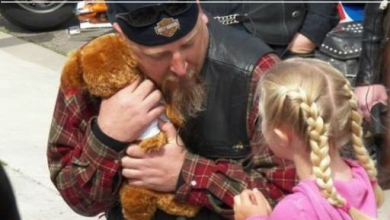I was fired after 40 years of operating the school bus due to a parent complaint.
A month before retirement, after 42 years of flawless service as a school bus driver, Ray Mercer is abruptly suspended. Why? A parent catches sight of him at a motorcycle rally. Mrs. Westfield takes photos of Ray in his leather vest next to his Harley and raises alarm, labeling him a “dangerous biker element.” Principal Hargrove—a man Ray has trusted for decades—gives in to the pressure.
“You’re on administrative leave pending investigation,” he says, avoiding Ray’s eyes.
Suddenly, Ray’s spotless record—no accidents, lives saved with CPR, challenging snowy roads safely navigated—counts for nothing. Neither do his charity rides with his motorcycle club, their work supporting veterans, or the quiet kindness he’s shown generations of students. Heartbroken, Ray withdraws to his garage, mourning a community that turned on him in an instant.
But the tide begins to shift. Parents push back. Former students speak up. Emma Castillo, now a journalism student who once was a frightened first-grader Ray comforted, writes a compelling exposé revealing the truth about his club: their charity work, loyalty, and humanity. Students organize a protest demanding Ray’s reinstatement. Facing mounting public outcry, the school board reverses its decision.
Ray agrees to return for his last month—but on his own terms. He rides his Harley to work, teaches motorcycle safety to students, and invites his club brothers—veterans, surgeons, accountants in leather vests—to his retirement ceremony. In a powerful conclusion, the school gym fills with roses sent by former students. Tommy Wilkins, now a Marine whom Ray once helped through hard times, addresses the crowd: “You judged these men by their patches, not their hearts.”

